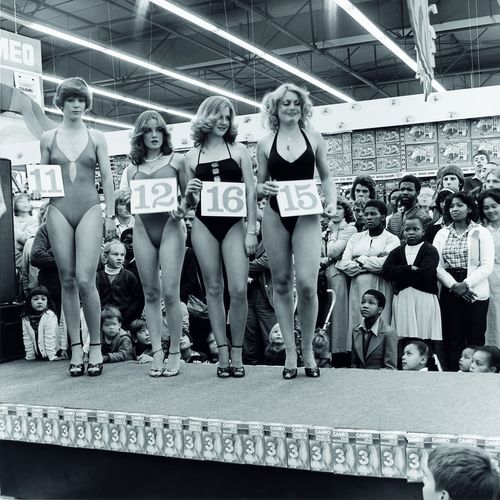Black, Brown, White
dal 23/2/2006 al 17/6/2006
Segnalato da
23/2/2006
Black, Brown, White
Kunsthalle Wien, Wien
Photography from South Africa

Photography from South Africa
More than ten years after the end of apartheid, South Africa, the supposedly “rainbow nation", is a country still torn by inner conflicts. Critics maintain that the democratic process has led only to a re-coloring of the elites, not to a just division of wealth. The rates of violence and criminality remain high and the Truth and Reconciliation Commission (TRC) has achieved, at most, a superficial reconciliation between enemy camps. Against this background, the exhibition Black, Brown, White searches for clues in pictures. Outstanding South African photo artists of various generations, who see themselves not as political documenters but rather as observers of everyday life, will show thematic series of their works which represent diverse facets of a country between apartheid and new departures.
The Indian South African curator and Professor of Film Jyoti Mistry from Johannesburg helped determine the selection of works and made valuable contributions to placing them within the complicated context of South African reality.
For a long time, South African photography was dominated by a journalistic tendency which employed the camera as a weapon in the struggle against apartheid. Yet at the same time, beginning with David Goldblatt (born 1930), another direction developed which renounced the spectacle of big political events, mass protests and massacres and instead attempted to plumb the depths of the complex South African psyche through precise observation of everyday life and specific social mileux.
In these documentary works, Goldblatt has said, the camera is used not as a machine gun but as a navigation instrument in a political and racist labyrinth. The photographs have an ambivalent posture, writes the theorist Okwui Enwezor: “They have something fugitive about them, an elliptical quality. When, however, their linked motifs and strains of narrative are pursued, they provide an extraordinarily profound political analysis“.
Religion, ritual and death dominate the selection of works by Andrew Tshabangu and Pieter Hugo. Claustrophobia and existential boundary experiences are nested in Thando Mama’s eerie video installation We are afraid and in the photographer Jo Ractliffe’s series of pictures. Finally, the compulsory relation between remembrance and forgetting, the constant changing of public and private spaces, and the new determination of identities, are the central themes of the expeditions into the unspectacular undertaken by David Goldblatt, Zwelethu Mthethwa, Omar Badsha and Berni Searle.
With Black, Brown, White the Kunsthalle continues its series of exhibitions of contemporary artists outside the established art scene - as before, for example, with Flash Afrique and Kapital & Karma (India).
Supplementary to Black, Brown, White, and in co-operation with Literature in March, the Kunsthalle will host the exhibition Drum. Photo Journalism from South Africa (Drum. Fotojournalismus aus Sudafrika) in the art gallery area of Hall 1 from March 7 to April 16, 2006. This exhibition takes up the legendary magazine Drum (founded in 1951) and its militant photo journalists. The magazine adapted the aesthetics of white middle-class publications like Life, Look and Picture Post for a public in the black townships and soon became an important forum for the struggle against apartheid. The three Drum photographers Jurgen Schadeberg, Bob Gosani and Ranjith Kally are represented by a selection of their works, ranging from pictures of the night-life in the later razed bohemian district Sophiatown to photos of Indian gangsters in the coastal city of Durban.
Kunsthalle Wien, Museumsquartier
Museumsplatz 1 A-1070 Wien



